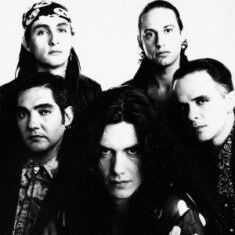
Caifanes is a Mexican rock band formed in Mexico City in 1987. The group achieved commercial success during the late 1980s and early 1990s. The original lineup of members consisted of Saúl Hernández, Sabo Romo (bass), Alfonso André (drums) and Diego Herrera. Alejandro Marcovich later joined as lead guitarist. Caifanes' style can be described as a hybrid of British new wave, progressive rock and Latin percussion underscored by deep, somber and Latin American-Mexican Spanish-influenced lyrics and the vocal style of Saúl Hernández. Members of Caifanes have cited The Cure, The Beatles and King Crimson as major influences. Adrian Belew produced their third studio album, El Silencio, and made a guest appearance on the track Piedra.

Bersuit Vergarabat is an Argentine rock band that formed formally in 1987.

Vox Dei is an Argentine rock band credited for recording the country's first concept album, La Biblia. Their most prolific years were the 1970s, when they recorded ten albums.
Óscar Moro was an Argentine rock drummer.

Tres is the third studio album released by the rock en español band Fiel a la Vega. It was released in 1999 by EMI Latin and is the first album by the band released on an international label.

La Prosperidad is the fourth studio album released by the rock en español band Fiel a la Vega. It was released independently in 2002.

Los Gatos were an Argentine rock group of the late 1960s, founded in the wake of an earlier group, Los Gatos Salvajes, who shared two of the same members. They are considered part of the founding trinity of Spanish-language rock in Argentina, along with Almendra and Manal. The unexpected success of their 1967 debut single "La balsa" was the kickstarter of Argentine rock, and pioneered Spanish-language rock. They explored psychedelic rock and their later recordings with Pappo are an early example of progressive rock, before splitting in 1970. Los Gatos reunited for a tour in 2007.

Los Piojos were an Argentine rock band. Extremely popular, it became one of the seminal bands of the 1990s Argentine music scene.

José Alberto Iglesias, better known as Tango or its diminutive Tanguito or Ramses VII, was an Argentine rock singer-songwriter. Born into a working-class family from western Greater Buenos Aires, he began his career in the early 1960s as the lead singer of the nueva ola group Los Dukes, which recorded two singles released on label Music Hall. In the mid-to-late 1960s, he became a leading figure in the countercultural underground of Buenos Aires, a scene that gave birth to Argentine rock, the earliest incarnation of Spanish-language rock. Tanguito is celebrated for co-writing Los Gatos' hit "La balsa", that catapulted the burgeoning rock nacional into massive popularity in the summer of 1967–68. This success led to a contract with RCA Victor which soon ended after the little impact of the 1968 single "El hombre restante". Tanguito later worked for Mandioca, Argentine rock's first independent record label founded by producers Jorge Álvarez and Pedro Pujó in 1968.
King Changó is a Latin ska band from New York City, New York with roots in Venezuela. Its name comes from Changó, the Afro-Cuban god of war.
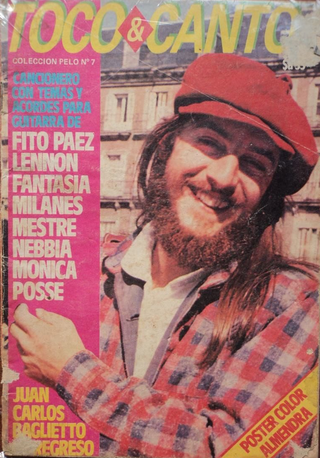
Juan Carlos Baglietto is an Argentine musician, singer and composer. He is one of the iconic figures of the musical movement called Trova Rosarina, a famous generation of singers and composers based in the city of Rosario, who came to prominence during the 80's, and were famous for their groundbreaking work in pop music, with a sound rooted in rock, tango and "folklore argentino".
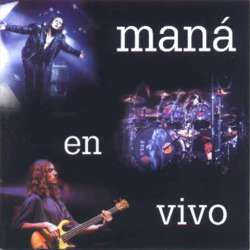
Maná en Vivo is the first live album released by the Mexican rock band Maná. After Iván González and César López left the group, Fher Olvera, Alex González, and Juan Calleros continued to perform as a trio. They recorded Maná en Vivo in August and September 1994 during their ¿Dónde Jugarán Los Niños? World Tour. The double CD includes material from concerts at the Universal Amphitheatre in Los Angeles; the Sports Arena in San Diego; the Aragon Ballroom in Chicago; the Teatro Gran Rex in Buenos Aires, Argentina; the Estadio de Chile in Santiago, Chile; and the Sala Estandard in Barcelona, Spain. Olvera, González, and Calleros were joined by Carlos Orozco on guitar, Sheila Ríos on vocals, and Juan Carlos Toribio on keyboards.

Carlos Alberto Mestre mostly known by his stage name Nito Mestre, is an Argentine musician, founding member –along with Charly García– of Sui Generis, member of PorSuiGieco, bandleader of Nito Mestre y los Desconocidos de Siempre and a recording solo artist. Sui Generis, was initially formed in 1969 by Charly García, Nito Mestre, Rolando Fortich (bass guitar Liam Young, Alberto Rodriguez and Carlos Piegari. Later on, Sui Generis became a duo as everyone left except for García. After the band split in 1975, Nito Mestre formed a new band called "Nito Mestre y los Desconocidos de Siempre" with María Rosa Yorio on vocals, Rodolfo Gorosito on guitar, Alfredo Toth on bass, Ciro Fogliatta on keyboards and Juan Carlos "Mono" Fontana as a drummer. In the early 80s, Nito pursued a solo career.

Félix Francisco Nebbia Corbacho, better known as Litto Nebbia is an Argentine singer-songwriter, musician and producer, prominent in the development of the early Argentine rock scene.
Rubén Juárez was an Argentine bandoneonist and singer-songwriter of tango.
Jorge Dalto was a pop, jazz and Afro-Cuban music pianist from Argentina, and the former musical director and keyboardist for George Benson, contributing the acoustic piano intro and solo to Benson's 1976 Grammy-winning hit version of Leon Russell's "This Masquerade". He also performed with Tito Puente, Grover Washington, Spyro Gyra, Fuse One, Gato Barbieri, Willie Colon and others. He died of cancer at the age of 39.
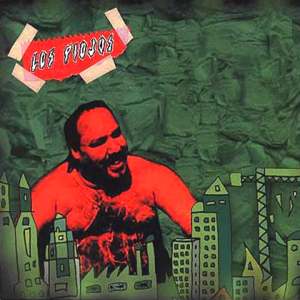
Verde paisaje del Infierno is the sixth album by Argentine rock band Los Piojos, released in 2000.

"La balsa" is the debut single by the Argentine band Los Gatos, released on July 3, 1967 on Vik, a subsidiary of RCA Victor. Formed in 1967 after the disbandment of Los Gatos Salvajes, Los Gatos were the house band of the bar La Cueva, which became a popular meeting place for rock enthusiasts and the birthplace of Argentine rock—known locally as rock nacional. During the mid-to-late 1960s, Buenos Aires was experiencing a cultural blossoming characterized by innovations in modern art, literature and cinema, largely driven by a burgeoning youth subculture that adhered to the countercultural phenomenon of the decade. The underground had its center in La Cueva, Plaza Francia and the Torcuato di Tella Institute, and identified with British Invasion music. "La balsa" was written by Litto Nebbia—lead vocalist of the band—and Tanguito on May 2, 1967, in the men's toilet of La Perla de Once, another bar frequented by the group. At the time, Argentina was under a military dictatorship led by Juan Carlos Onganía, which regularly imprisoned and persecuted these young bohemians.

Salsa Big Band is the fourth studio album by Rubén Blades and Roberto Delgado & Orquesta, released on 29 April 2017 by Rubén Blades Productions. After the release of Son de Panamá in 2015, also recorded with Delgado & Orquesta, Blades decided to record another album with them, on which included eleven songs. He had previously recorded nine on the songs, and two were covers of songs written by Luis Demetrio and Rene Touzet. Delgado was the producer for the álbum. Blades' principal inspiration for the album was his admiration for the work of Puerto Ricans performers such as Tito Puente, Tito Rodríguez and Willie Rosario, and the big band sounds of the 1950's.
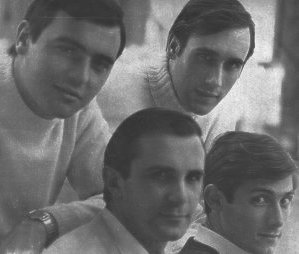
Cuarteto Zupay or simply Los Zupay, was an Argentinian Popular Music group formed in Buenos Aires in 1966 that remained active until 1991. The founding members were the brothers Pedro Pablo García Caffi (baritone) and Juan José García Caffi, Eduardo Vittar Smith (bass) and Aníbal López Monteiro.
















